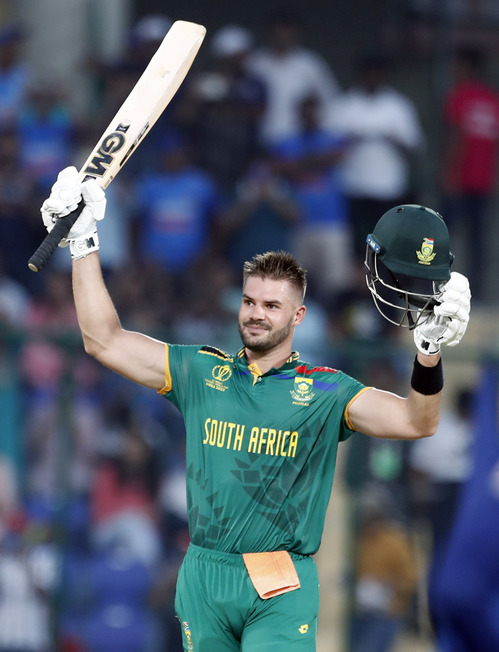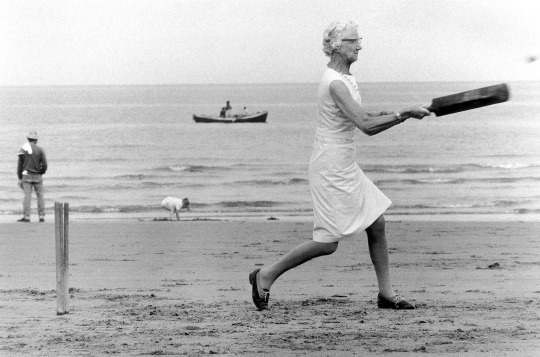#south african cricket
Text


On September 9th, 1988, BBC News reported that England cricket captain Graham Gooch and seven other team members had been refused visas to travel to India, resulting in the upcoming tour being cancelled. The players were on a UN blacklist over having participated in rebel tours to Apartheid South Africa.
Colin Moynihan, Sports Minister in the Thatcher Government, appeared to be primarily concerned about the ‘serious implications for international cricket’, while the Secretary General of the Commonwealth said that India should be applauded.
According to BBC reporting:
"…Graham Gooch's appointment as captain of the England team by the Test and County Cricket Board (TCCB) was considered controversial because of his rebel tour to South Africa in 1982. Kim Barnett, Alan Lamb and Philip Newport were placed on a UN blacklist for playing in the Republic last winter. The other four players - John Emburey, Robert Bailey, Graham Dilley and Robert Robinson - were already on the list for playing in previous seasons…"
The TCCB were apparently ‘bitterly disappointed’ and by October had announced an alternative tour to New Zealand. This plan didn’t last long, and was soon called off by New Zealand cricket administrators over fears of anti-apartheid protests.
Within months, the ICC issued a ruling that international players who ‘moonlighted’ in the South African domestic competition would also face bans.
Graham Gooch subsequently toured internationally as England captain, including to India, and retired from Test Cricket in 1995, 20 years after his debut.
In 1990, a rebel tour to South Africa led by Mike Gatting had to be abandoned due to intensifying protest activity.
In 2010, Paul Weaver in The Guardian referred to the 1990 England tour as the 'most reprehensible of all’, quoting long term anti-Apartheid activist and British MP, (Lord) Peter Hain;
"…This was on the cusp of a historic change in South Africa. So for Gatting and his tourists to go, clodhoppers and all, into this transformative moment was grotesque beyond belief. It was not surprising it caused such offence. The rebel tours were a doomed attempt to shore up the tottering apartheid system, when it needed to be isolated…"
Sources: BBC News, The Guardian, ESPN-Cricinfo. Top Image: Crictracker
#uk politics#social history#social justice#human rights#uk government#cricket history#apartheid#south african cricket#south africa#indian cricket#test cricket
4 notes
·
View notes
Text
South Africa cricket Equal Pay for cricketer
0 notes
Text
me today

#cuz Australia played shitty cricket this season#and i like south African national anthem#cricket#cricket world cup 2023#aus vs sa
28 notes
·
View notes
Text
ICC World Cup : दक्षिण अफ्रीका के मार्करम ने रचा इतिहास, वनडे विश्व कप में लगाया सबसे तेज़ शतक
New Delhi: दक्षिण अफ्रीका के बल्लेबाज एडेन मार्करम ने शनिवार को यहां मात्र 49 गेंदों में इतिहास रचते हुए एकदिवसीय विश्व कप का सबसे तेज शतक जड़ दिया।
29 वर्षीय खिलाड़ी वनडे विश्व कप 2023 के शुरुआती मैच में श्रीलंका के खिलाफ 49 गेंदों में तीन अंकों के आंकड़े तक पहुंच गया। पिछला रिकॉर्ड आयरलैंड के केविन ओ’ब्रायन (2011 विश्व कप में इंग्लैंड के खिलाफ 50 गेंद) के नाम था।
मार्करम ने 54 गेंदों में 106…

View On WordPress
#created history#ICC World Cup Cricket 2023#scoring the fastest century#South African batsman Aiden Markram
0 notes
Text
Ask an older generation of white South Africans when they first felt the bite of anti-apartheid sanctions, and some point to the moment in 1968 when their prime minister, BJ Vorster, banned a tour by the England cricket team because it included a mixed-race player, Basil D’Oliveira.
After that, South Africa was excluded from international cricket until Nelson Mandela walked free from prison 22 years later. The D’Oliveira affair, as it became known, proved a watershed in drumming up popular support for the sporting boycott that eventually saw the country excluded from most international competition including rugby, the great passion of the white Afrikaners who were the base of the ruling Nationalist party and who bitterly resented being cast out.
For others, the moment of reckoning came years later, in 1985 when foreign banks called in South Africa’s loans. It was a clear sign that the country’s economy was going to pay an ever higher price for apartheid.
Neither of those events was decisive in bringing down South Africa’s regime. Far more credit lies with the black schoolchildren who took to the streets of Soweto in 1976 and kicked off years of unrest and civil disobedience that made the country increasingly ungovernable until changing global politics, and the collapse of communism, played its part.
But the rise of the popular anti-apartheid boycott over nearly 30 years made its mark on South Africans who were increasingly confronted by a repudiation of their system. Ordinary Europeans pressured supermarkets to stop selling South African products. British students forced Barclays Bank to pull out of the apartheid state. The refusal of a Dublin shop worker to ring up a Cape grapefruit led to a strike and then a total ban on South African imports by the Irish government.
By the mid-1980s, one in four Britons said they were boycotting South African goods – a testament to the reach of the anti-apartheid campaign. . . . The musicians union blocked South African artists from playing on the BBC, and the cultural boycott saw most performers refusing to play in the apartheid state, although some, including Elton John and Queen, infamously put on concerts at Sun City in the Bophuthatswana homeland.
The US didn’t have the same sporting or cultural ties, and imported far fewer South African products, but the mobilisation against apartheid in universities, churches and through local coalitions in the 1980s was instrumental in forcing the hand of American politicians and big business in favour of financial sanctions and divestment.
By the time President FW de Klerk was ready to release Mandela and negotiate an end to apartheid, a big selling point for part of the white population was an end to boycotts and isolation.
Twenty-seven years after the end of white rule, some see the boycott campaign against South Africa as a guide to mobilising popular support against what is increasingly condemned as Israel’s own brand of apartheid.
. . . continues at the guardian (21 May, 2021)
#israel#palestine#gaza#south africa#i think all of us need to seriously study the history and actions of the anti-apartheid movement#and apply these lessons to the israeli occupation
3K notes
·
View notes
Text
i find it so funny that literally most of my favourite women cricketers from a few years back are queer in some sort of way ashdjsgfsfk
#its just such an unexpected coincidence#like yeah 2 of my favourite south african women's cricketers? BOOM they're fucking married#hell yeah we stay winnin#methinks mesays.
0 notes
Text
African stormy fast bowler got angry… said, are we humans or…
African stormy fast bowler got angry… said, are we humans or…
highlights
South Africa team on Australia tour
The visiting team got defeated in the first test match
Kagiso Rabada expressed his displeasure
new Delhi. The South African team is in Australia for a three-Test series. The Kangaroos defeated South Africa by six wickets in just two days on the fast pitch of Brisbane’s Gabba ground to take a 1-0 lead in the series. South Africa’s batsmen failed in…
View On WordPress
#African#Angry#AUS vs SF#Ben Stokes#bowler#Cricket#cricket news#Cricket News in Hindi#cricket south africa#fast#humans#Kagiso Rabada#Quinton de Kock#quinton dekock#Sports#stormy#test cricket
0 notes
Photo








LET THEM EAT CAKE! 2022 – measurements variable, acrylic, leather, string, plastic, titanium, stainless steel, plastic, fibreglass, carbon fibre, high density foam, aerosol on fabric, polystyrene | featured with art.co.za (http://www.art.co.za/joeturpin/) | produced toward my MFA Degree at the Pratt Institute 🏏
Growing up in South Africa, one of the many sports I played as a child was cricket. I played at home, mostly with my primary school team and for a brief period I also played for an academy. I was what they call an ‘all-rounder’ in position, enjoying bowling, batting and fielding equally. I wasn’t great but I wasn’t bad either. As I entered my teenage years this part of my life gave way for a love of football (soccer) instead, as well as artwork production. After this I even became critical of the sport. It is mostly played and embraced by countries which are former British colonies, and can be seen as a legacy of colonialism and imperial exploit in Africa, Asia and the Caribbean. In South Africa itself in recent years the sport’s official organisation and figures have been embroiled in heated exchanges, after Black players took the symbolic knee in support of the Black Lives Matter movement. The game in my home country has, not wholly but in majority, been impassioned and played by the white communities, along with Rugby. To return to this theme, of the sport of cricket, in an artwork is therefore a confrontation. It is an uncomfortable look in the mirror that is an interrogation of my identity as a South African, and an interrogation of whiteness and post-colonial reality. Ironically enough, it has taken me being temporarily based in the United States, in New York, for me to conceptualise this artwork. I could not be more far removed from the game than I am now. Physically perhaps, but not mentally. As a South African I look back at my childhood enjoyment and participation of and in cricket with an element of huge nostalgia. That time in my life was one of days of stability, where my family members I have now lost were still around, and things seemed more blissful. Some of my first artistic exploits as a child was to trace and draw the photographs of the cricket players in the weekend newspapers my family had delivered to our home. The work consists of six cricket helmets, one for each of the colours on the South African flag, with gold face protection bars instead of the usual manufactured colour, surrounding and looking inward onto a marble-coloured cake tray, the kind commonly available in homeware supermarkets here in the USA. On top of the tray sits twelve cricket balls, six white and six red (such are the colours of the balls in official matches), but not in a separated order. The balls will be mixed up like a chess board to integrate the division of colour. Like baseball, so cricket. Like checkers, so chess. This is a geopolitical work of identity hybridity, unity and simultaneously, of critique. A cricket critique.
#Joe Turpin#Turpin#Art#Cricket#Conceptual Art#African Art#Contemporary Art#Contemporary African Art#Conceptual African Art#South Africa#South African Art#Sport Art#Installation
0 notes
Text
lol i am so glad i didn't wake up/stay up to watch this game, these proteas have choked even before getting to the semis 😂 what a shitty team 😂 jokes 😂 clowns 🤡 come home and quit international cricket once .......
#imagine playing so well the first few games and then bottling it at the end#they deserve nothing#i hope they never see a world cup final ever. they must choke in group stages and die#anyways. im super thankful i didnt waste my sleep on this shitty team. just woke up for fajr and decided to check the score#found these clowns needing 36 off 2 overs and i thought to myself. wow. you cant trust south african men.#cricket tag#t20 wc 2022#ned v sa
1 note
·
View note
Text
Former South African bowler Pumelela Matshikwe convicted in 2015 Ram Slam fixing case
Former South African bowler Pumelela Matshikwe convicted in 2015 Ram Slam fixing case
Tsolekile, a former South Africa Test cricketer, was handed a 12-year ban for “contriving to fix a match or matches in the 2015 Ram Slam; failing to disclose to the CSA Anti-Corruption Officer the full details of an approach to engage in corrupt conduct”. Symes was banned for seven years, while Mbhalati was handed a ten-year ban. Petersen, the most prominent of the cricketers who turned out in 36…
View On WordPress
#African#bowler#bulletin#case#convicted#cricket#Daily#fixing#headlines#Matshikwe#News#package#Pumelela#Ram#Slam#South
0 notes
Text
South African cricketer, assaulted in England, out of coma
South African cricketer, assaulted in England, out of coma
South African cricketer, assaulted in England, out of coma
Mondli Khumalo, the 20-year-old South African cricketer who was assaulted outside a pub in Somerset in the early hours on June 29 (Sunday morning), is out of coma, a report in mirror.co.uk said on Saturday.Khumalo, who plays as an overseas professional for North Petherton Cricket Club in Somerset, remained in medically-induced coma for…
View On WordPress
0 notes
Text

An elderly woman plays cricket with her family on the beach, Whitby, England, 1974 - by Ian Berry (1934), English/South African
82 notes
·
View notes
Text
by Ben Cohen
South African Jews reacted with outrage on Friday after the country’s governing body for the sport of cricket stripped the Jewish captain of the U-19 national team of his role, citing the “risk of conflict or even violence” as the reason.
Cricket South Africa (CSA) announced that David Teeger, who is Jewish, would no longer captain the side just one week before the opening of the U-19 Cricket World Cup, when teams from 16 nations will compete in South Africa for the sport’s top prize.
In a statement released on Friday, CSA said that its security team had advised “that protests related to the war in Gaza can be anticipated at the venues for the tournament.”
It added that such protests would likely focus on Teeger — an observant Jew and resident of Johannesburg who made his professional cricket debut in 2023, scoring an impressive 51 runs for the South Africa Emerging Players side against North Cape. Teeger was only appointed to the captaincy of the U-19 team last month.
The targeting of Teeger could result “in conflict or even violence between rival groups of protestors,” CSA said. Invoking its “duty to safeguard the interests and safety of all those involved in the World Cup,” it said that Teeger had been “relieved of the captaincy … in the best interests of the players, the U-19 team, and David himself.” Teeger would “remain an important and active member of the team and we wish him and the team every success in the tournament,” CSA concluded.
CSA’s decision — against the background of rising antisemitism in South Africa, widespread support for Hamas in the wake of its Oct. 7 pogrom in Israel, and the charge of “genocide” brought by South Africa against Israel at the International Court of Justice (ICJ) — provoked fury in South Africa’s Jewish community.
Prof. Karen Milner, chair of the South African Jewish Board of Deputies (SAJBD), told The Algemeiner that CSA’s decision was “an outrageous act of antisemitism.”
“There is no basis for this decision, other than the fact that Teeger is Jewish,” Milner said. “It is shameful that CSA is embarking on a path that is dangerously reminiscent of Nazi Germany, when Jews were actively discriminated against, including among sporting clubs.” She stressed that the SAJBD “would do everything in its power to fight against this vicious prejudice.”
In a separate statement, the South African Zionist Federation (SAZF) said it would be calling on the International Cricket Council (ICC), the sport’s global governing body, “to investigate the CSA’s blatant act of discrimination.”
“The ANC [ruling African National Congress] government’s political hostility to Israel and its friendship with Hamas has created a climate in which it is entirely acceptable to target a sportsman because he is proudly Jewish,” the SAZF stated.
Among those expressing sympathy for Teeger on social media was three-time MLB All-Star Kevin Youkilis. “Heart goes out to this young Jewish man,” Youkilis posted on X/Twitter. “The ‘security risk’ excuse is bullshit.”
Former Boston Red Sox star Youkilis also referred to a speech that Teeger made just weeks after the Hamas pogrom, delivered after he received the “Rising Star” Award at a Jewish community ceremony. Teeger paid tribute to the Israeli military, saying, “Yes, I’ve been [given] this award, and yes, I’m now the Rising Star, but the true rising stars are the young soldiers in Israel.” He went on to dedicate the award to “the State of Israel and every single soldier fighting so that we can live and thrive in the diaspora.”
Teeger was being “punished for showing gratitude to the State of Israel,” Youkilis commented.
94 notes
·
View notes
Text
South Africa strikes yet again with more “antizionist” bullshit by expelling their Jewish captain from their cricket team.
This was never about Israel, but Jews as a whole. I urge South Africa’s Jews to leave.
50 notes
·
View notes
Text
AUS vs SA: The African captain Elgar raging on Gaba's pitch, said - I am thinking what happened after all
AUS vs SA: The African captain Elgar raging on Gaba’s pitch, said – I am thinking what happened after all
highlights
Brisbane Test between Australia and South Africa ended in 2 days
The African captain Dean Agler raised questions on the pitch
Brisbane. After losing the opening Test against Australia within two days, South African captain Dean Elgar criticized the Gabba pitch, saying it had excessive moisture, due to which the match could not be equal.
The first Test match of the series between…
View On WordPress
#African#AUS#Australia vs South Africa#Captain#cricket news#Cricket News in Hindi#dean elgar#dean elgar on gabba wicket#Elgar#Gabas#gabba wicket#happened#Mark Waugh#Pat Cummins#pitch#raging#Ricky Ponting#south africa vs australia gabba 1st test#Thinking
0 notes
Text
Is this a safe space to finally say that the BKW promotion WAS NOT ENOUGH and started a bit too late?
A movie as fun and full of action like this one deserved more. For what I've read in Twitter / X not even south African people knew about this.
In Latin America I saw more ads from the distribution companies ( in Portuguese and Spanish) but the bkw ig page doesn't seem to have paid for ads on IG or fb.

And to make things worse, the face: Bill Skarsgård didn't do anything else to promote it besides attending the premiere. Valter and Eija did more for him by sharing the clip and trailer on their IG stories.
I mentioned this before I'll say it again , there were Q&A clips from the red carpet SAM RAIMI himself took the time to play along and answer ... Where was the star? *crickets*
This past week the zendaya movie premiered too and did better than BKW marketing wise because since the beginning people were able to link one face to the product. Bill could have done the same , putting himself out there to compensate the -lets admit it - lazy marketing campaign.
Let's hope things get better in the near future , because if Lionsgate and Bill's team are going to manage the promotion for "The crow" like this then ... It'll flop terribly.
16 notes
·
View notes